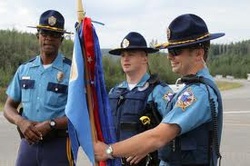
I wish we could all say that! Christians are called "soldiers" of Christ (2 tim. 2:3) but sometimes we don't portray the mindset of a true soldier. A true soldier will continue to do their jobs in the face of powerful storms, whether those storms be physical or metaphysical (i.e. that of our life). Every Christian soldier is going to go through storms in this life that would keep some from doing their work but it is the true soldier that stands guard and continues his work. What are some storms that could face a Christian soldier?
- Physical storms - I wonder how many evangelists on their way to some distant country have had their plans changed because of some storm that grounded the aircraft on which they were about to board and yet have not given up and simply boarded the next flight that would allow them to reach their destination.
- Spiritual storms - There is not one verse in the inspired word of God that ever should give the Christian the idea that his life is going to be void of troubles in his faith. In fact, I believe these storms actually help the Christian! They teach us and help us to found our faith upon surety and trust in the Lord.
- Storms of this life - There are a number of things that could be said about these types of storms... They include lack of money, lack of family, or lack of anything else which could cause a Christian soldier to slow, or even stop, his Christian service to the Lord. And yet, we shouldn't allow them to stop us any more than physical storms or spiritual storms!
Let's keep doing our job and use these soldiers as an example to follow in our Christian service to the Lord, and not worry about getting wet (whether it be physically or in any other way) and simply worry about doing our job.






 RSS Feed
RSS Feed
